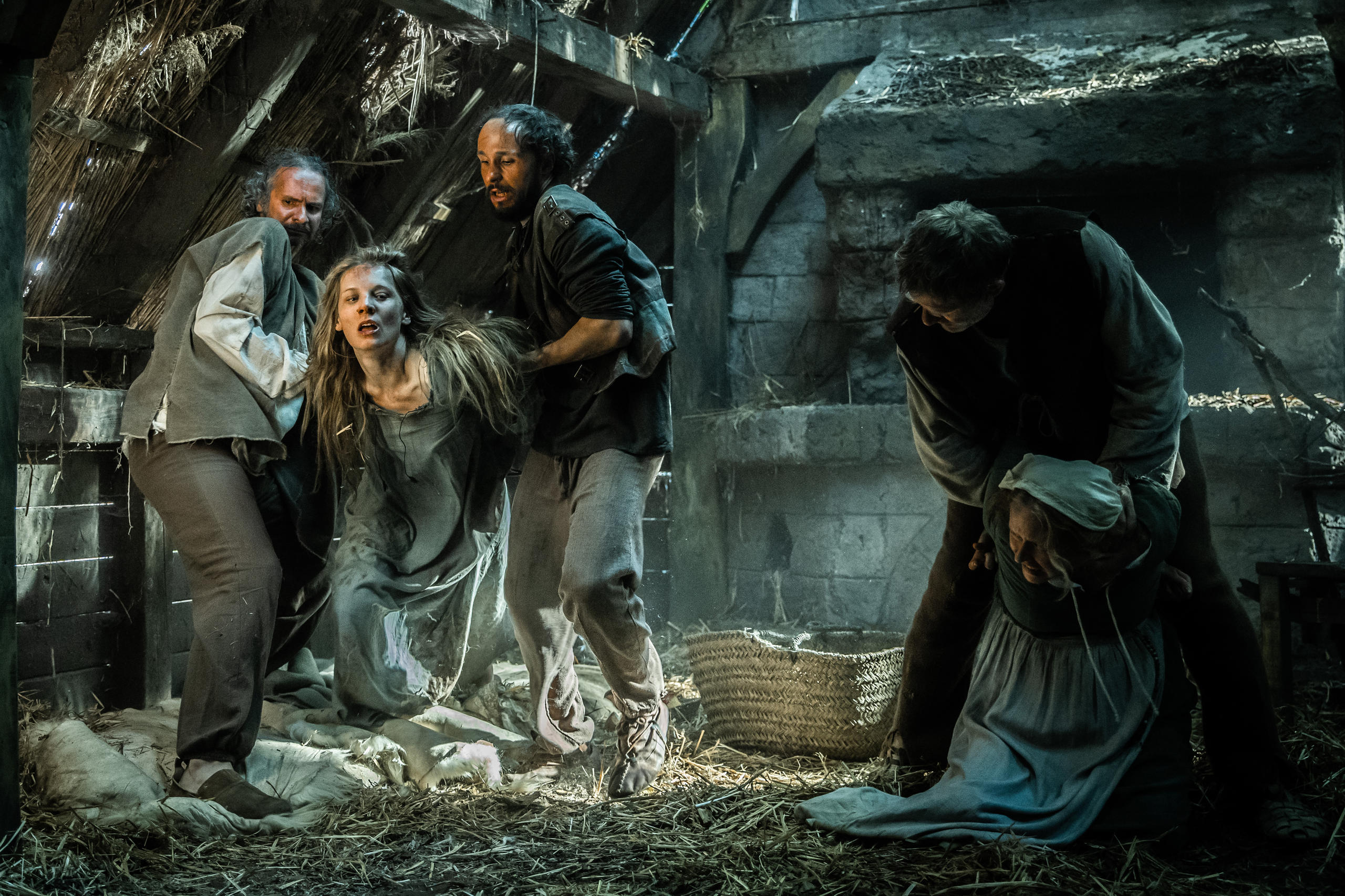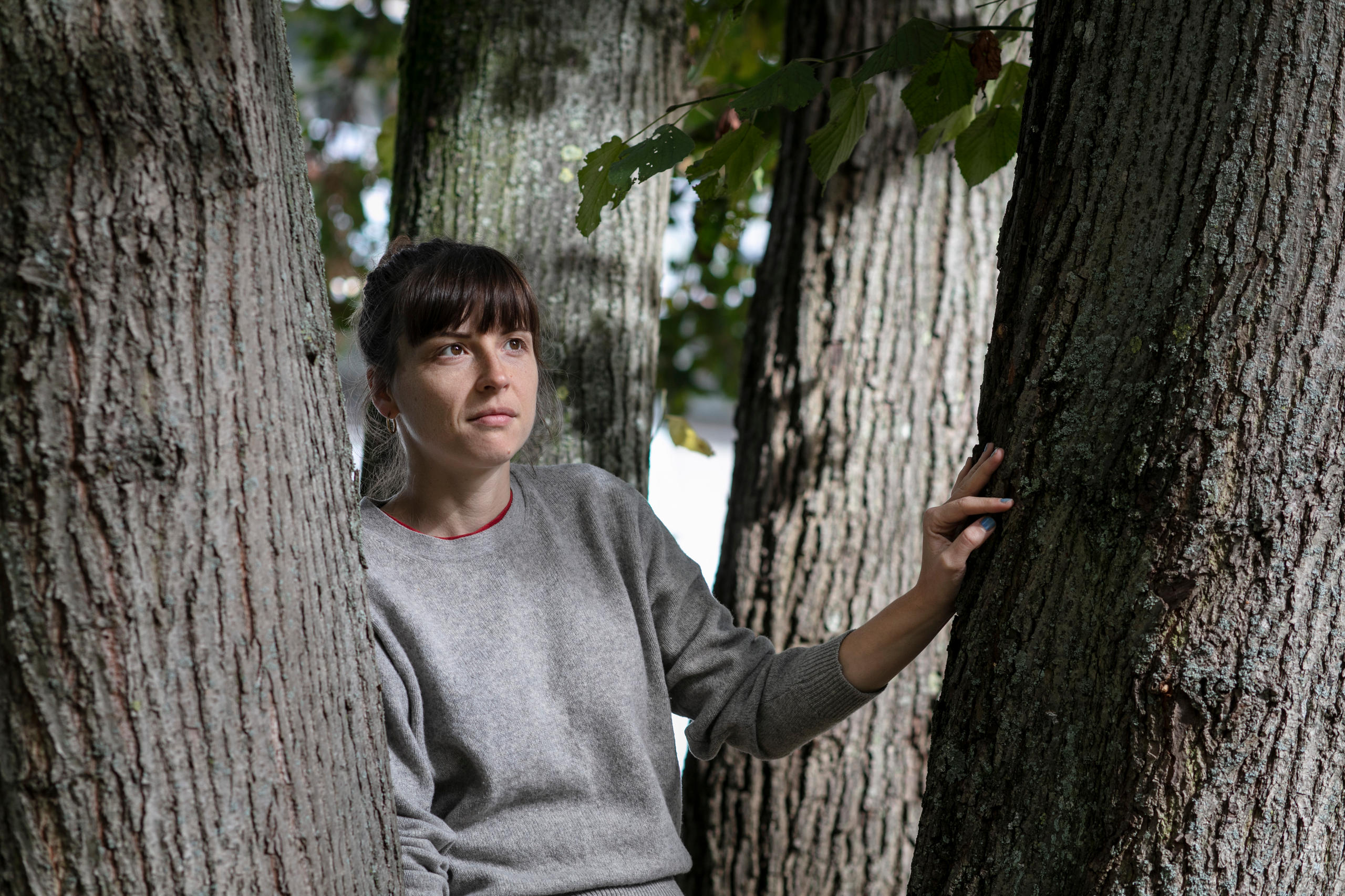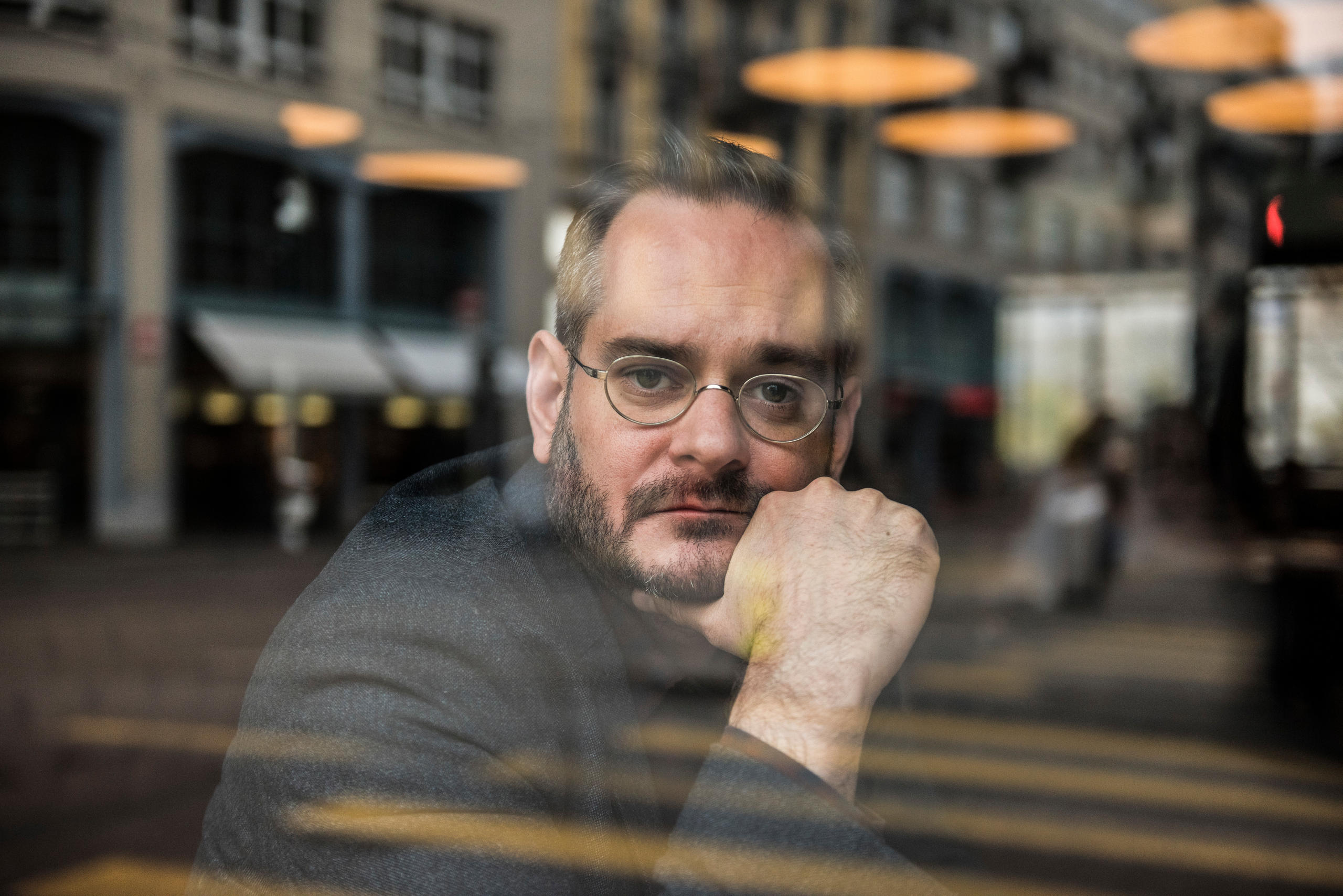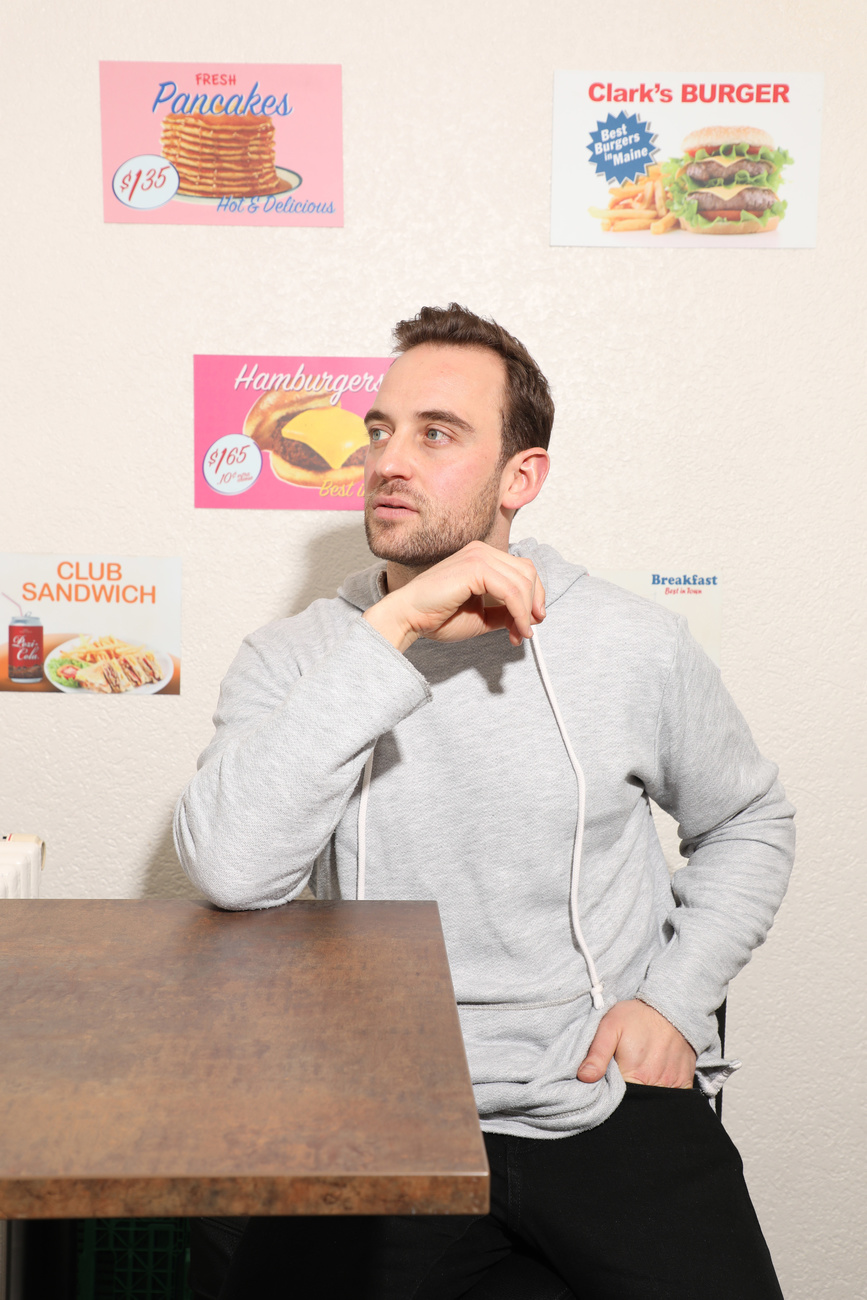‘The Middle East is part of my sensory world’

Anne-Sophie Subilia’s recent novel L’Épouse (The Wife), which this year won a Swiss Literature Award, is set in Gaza in 1974. The author immerses the reader in a totally believable way in a place she herself has never lived.
“Just now I felt the need to have fresh air and sun on my body, so I went outside. For me, looking at the world through a window is not enough,” says Subilia, 40, who lives in Lausanne.
Sky, earth, water: she admits to being viscerally attached to these three elements, which make up her personality, but also her writing. In Jours d’agrumes (Days of Fruits), her first novel, published in 2013, the senses of smell and taste are omnipresent. This debut was followed three years later by Parti voir les bêtes (Gone to see the animals). The scenes in these two books reflect a life close to the products of the earth: a fruit and vegetable market in Montreal, or a landscape with an expansive feeling of freedom, somewhere near the Alps.
Jours d’agrumes was the product of a two-year stay in Montreal (2009-2011), where Subilia decided to devote her life to writing. Until then she had tried various jobs, both in Germany and France. She worked as a part-time journalist in Berlin and Strasbourg.
Despite being a major urban centre, Montreal helped her discover “geopoetics”, a literary and artistic movement which she was able to explore through a Quebec workshop. The aim is to re-establish and enrich the broken link between human beings and their environment – the earth, in the broadest sense.
Her thinking developed and new perspectives opened up on her return to Switzerland. Subilia got a writer-in-residence appointment on a sailing ship. A sailing ship? “Yes, yes, a sailing ship,” she replies with a grin. “The boat belonged to MaréMotrice, an association in Fribourg which recruits four artists and/or writers every year for a sailing trip to Greenland in July and August.”
Was this an extreme adventure? “No, not for me anyway, because I never felt in any danger on the voyage,” she says. “I was able to focus on my favourite preoccupations: solitude, misunderstanding, the power relations between the artists and the crew, and between us and nature.” The roughness of an untamed polar region was reflected in the roughness of human relations. During the trip Subilia kept a log, which she later transformed into a novel: Neiges intérieures [Inner snows], published in 2020.
Hard work and beach-club
Subilia made a bold leap from geopoetics to geopolitics when she decided to write L’Épouse, published in 2022. It is her most mature literary production so far. The book was nominated for two of the major Paris literary prizes, the Femina and the Médicis. The recognition was deserved for this intricately constructed novel which tackles a hard and painful reality: life in the Gaza strip.
It’s 1974, just after Israel’s victory in the Yom Kippur war; the Arab populations are still seething after this great humiliation. The novel takes shape in a very tense sociopolitical context. Subilia handles it as a good novelist should: she is lucid but sensitive, and she neither judges nor condemns. She observes and reports what she sees.
Vivian, a 30-year-old Swiss delegate of the International Comittee of the Red Cross (ICRC), and his English wife, Piper, arrive in Gaza. The pair move into a house by the sea. The beach and its club offer moments of relaxation. Vivian is often stressed out by his demanding humanitarian work, and Piper has to deal with the hostility of those around her, though eventually she wins them over with a kind of heroic energy. She is L’Épouse in the title of the novel. She gives the book its despairing but courageous tone.
Knowledge of the Middle East
Thanks to Piper’s curiosity and her husband’s work trips, the reader discovers this conflict-racked region of the Middle East (Palestine, Israel and Egypt), described with an astonishing degree of knowledge of the places and the people who live there. It is astonishing because Subilia has never lived there.
“I did research online, and I used maps and photographs, some of them from my parents. My father was an ICRC delegate in Gaza in 1974, and my mother was there with him,” she explains. To begin with, she quizzed her parents thoroughly on the experience. Their recollections, plus the documentation she had gathered, all went into the story.
“I embellished the facts, and I must say that my parents’ life wasn’t like that of Vivian and Piper in the novel. The story I tell is not family history. However, this region of the Middle East is part of my sensory world,” she explains. “I couldn’t set a novel in Japan, say, because it doesn’t strike a chord with my sensitivity at all.”
The ICRC as a source of hope
What use can the ICRC be in a region where the conflicts and bitterness never end? The question haunts the reader, even if Subilia does not come out and ask it in her novel.
“I never saw my father’s work in Gaza, for the simple reason that I wasn’t born then,” she says. “I know, however, that the Red Cross acted as a buffer. Without those delegates, the despair among the local population would have been a lot worse. Humanitarian workers are plagued by doubts sometimes, but they also persevere, which is something I want to show.”
The choice of topic and the quality of her writing convinced the Federal Office of Culture to award Subilia a Swiss Literature Award in 2023. “I felt blown away,” she says. “It was something new for me. I’m just getting to know this dimension of success!”
L’Épouse is to be translated into Georgian and Italian, according to her Geneva publisher, Zoé, which is currently negotiating a further translation agreement.
Edited by Samuel Jaberg. Translated from French by Terence MacNamee
Worth CHF40,000 ($44,000) each, this year’s prizes will be awarded by the Federal Office of Culture on May 19 at the Solothurn literature festival.
Leta Semadeni is to receive the Swiss Literature Grand Prix for her life’s work in Romansh and German.
The special cultural promotion and development prize went to the project “Schulhausroman” (school novel) which provides coaching by writers for young people writing a novel.
Seven other authors, writing in French, German, Italian and Romansh, will receive a prize for a work of theirs published in 2022: Prisca Agustoni, Jachen Andry, Fanny Dezarsens, Eugène, Lioba Happel, Lika Nüssli and Anne-Sophie Subilia.

In compliance with the JTI standards
More: SWI swissinfo.ch certified by the Journalism Trust Initiative













You can find an overview of ongoing debates with our journalists here . Please join us!
If you want to start a conversation about a topic raised in this article or want to report factual errors, email us at english@swissinfo.ch.